Contact center of the Ukrainian Judiciary 044 207-35-46
ABOUT THE SUPREME COURT
FOR CITIZENS
ACTIVITY
PRESS-CENTER
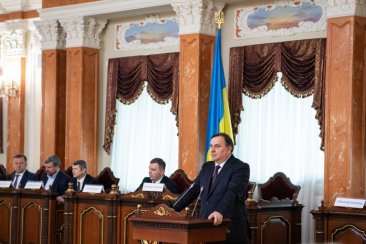
One of the priority objectives of the Supreme Court is to establish a constructive dialogue between courts of all jurisdictions and instances, which will help to consolidate efforts to resolve problematic issues that arise in the work of the courts.
The meeting between the Supreme Court leadership and the heads of the appellate courts provided an opportunity for such a dialogue. Representatives of the High Council of Justice, the High Qualifications Commission of Judges of Ukraine, the Council of Judges of Ukraine and the State Judicial Administration of Ukraine also took part in the working meeting.
"We have a unique opportunity to discuss the problems of the judiciary from a general perspective. Discussion in such a circle will allow us to better understand the roots of the problems and find effective ways to solve them," said Supreme Court President Stanislav Kravchenko.
In his speech, the Chief Justice provided general data on the state of the judiciary in 2023, drew attention to the main legal conclusions formulated by the Supreme Court, and outlined the range of issues that need to be addressed to improve the situation of the judiciary and its performance.
These include the proper organisation of the work of the courts under martial law, the reinforcement of court staff, the digitalisation of court proceedings, the increase in salaries for the staff of the courts of first instance and the courts of appeal, the establishment of communication mechanisms between courts and the improvement of approaches to communication with the public.
Stanislav Kravchenko also stressed the need to create a new network of courts by consolidating them. This is due, in particular, to the need to adapt the map of courts to the administrative-territorial structure and to avoid situations in which it is impossible to form a panel to hear a case because of the insufficient number of judges in a given court.
Finally, the SC President expressed his gratitude to the teams of all courts for their tireless work and the significant contribution of each judge and court staff member to the effective functioning of the judicial system. Stanislav Kravchenko thanked international partners for their assistance in restoring the court premises damaged or destroyed as a result of the war.
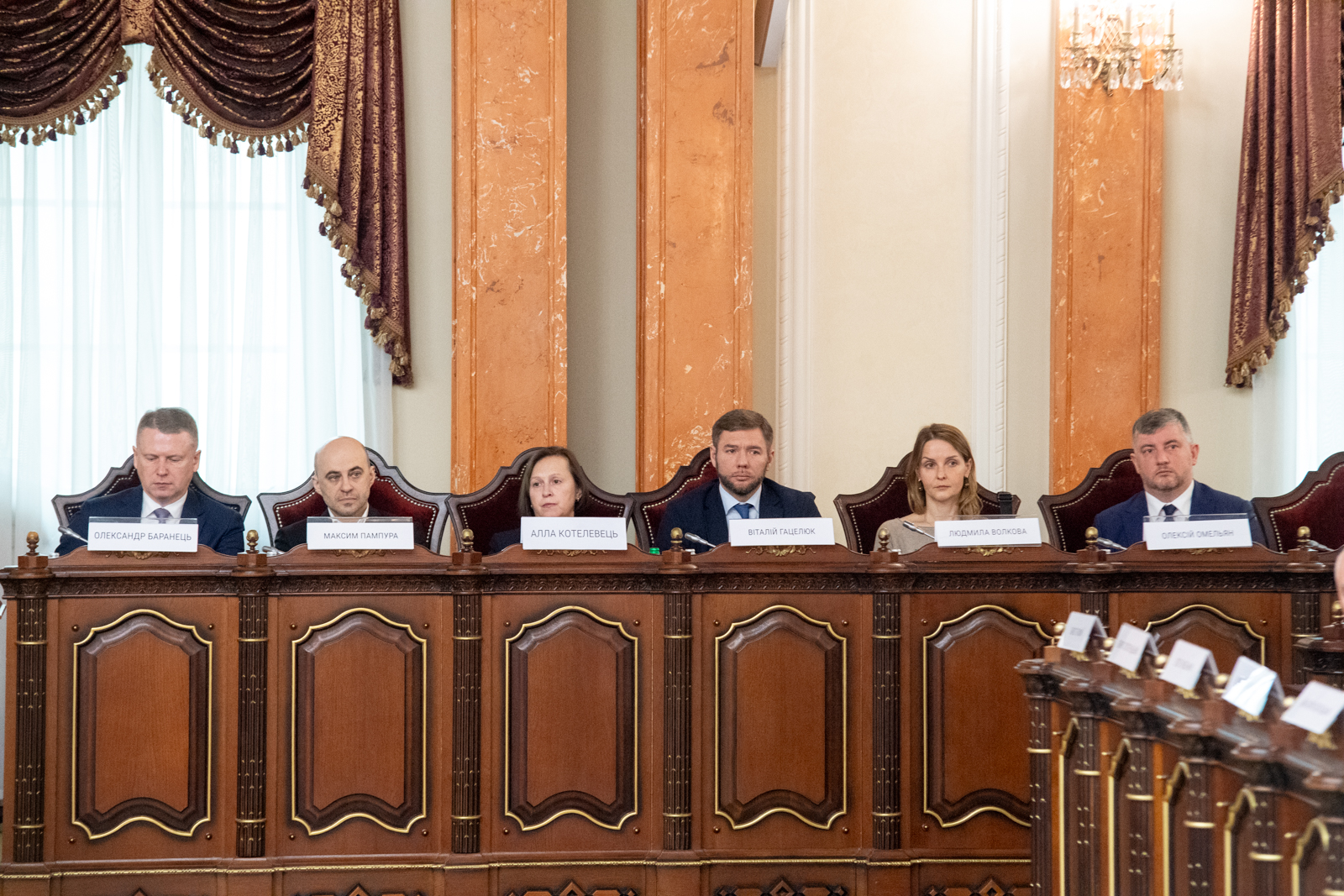
During the meeting, the representatives of the HQCJ of Ukraine highlighted the ongoing proceedings that the Commission had resumed.
In particular, HQCJ member Liudmyla Volkova noted that in almost ten months since the Commission resumed its work, its representatives have already checked the works of candidates for judges of first instance courts. At the same time, these candidates should be interviewed in connection with the changes to the legislation that Liudmyla Volkova believes are appropriate. She also said that the HQCJ had adopted a new version of the declaration of integrity for judges last autumn and thanked the Supreme Court for taking the initiative to hold a discussion on filling in the declaration.
In this context, the President of the Supreme Court, Stanislav Kravchenko, added that the introduction of a new form of declaration of judicial integrity was the first step towards resolving the issue of integrity standards. The next step should be to define the integrity criteria at the legislative level, which will facilitate their uniform understanding and application by the HQCJ, the Public Integrity Council and the HCJ, and ensure the unity of jurisprudence in cases involving integrity issues.
Vitalii Hatseliuk, a member of the HQCJ, said that the Commission was working at full capacity, maintaining a high pace of work and simultaneously conducting several procedures aimed at improving the staffing of the judicial system. Thus, the competition for vacant positions of judges in the courts of appeal and the High Anti-Corruption Court of Ukraine is currently underway. Simultaneously, the HQCJ is evaluating the qualifications of judges to ascertain their suitability for their roles.
Oleksii Omelian, a member of the HQCJ, drew attention to a procedure that also partially solves the problem of staff shortages - secondment as a temporary transfer of a judge to another court of the same level and specialisation. At the same time, the Commission carefully checks that the secondment of a judge to another court does not worsen the situation with regard to the handling of cases in his or her court.
Alla Kotelevets, a member of the High Council of Justice, said that the HCJ's priority was to create a service of disciplinary inspectors who would perform functions to further clean up and reboot the judiciary. The competitive selection procedure for this service will be based on the requirements of international experts, while the disciplinary function is currently performed by the HCJ, which consists of three disciplinary chambers.
The Acting Head of the State Judicial Administration of Ukraine, Maksym Pampura, stressed the need to regulate the appropriate level of remuneration for civil servants working in court administrations. Also, according to him, an important area of activity of the State Judicial Administration of Ukraine is the informatisation of court proceedings, which primarily involves ensuring the effective operation of the Unified Judiciary Information and Telecommunication System (UJITS). A technical audit of the UJITS subsystems was carried out at the end of last year with the support of international partners, and a functional audit is now underway, the results of which will be used by the SJA of Ukraine to propose the modernisation or creation of UJITS modules necessary to ensure the effective conduct of court proceedings.
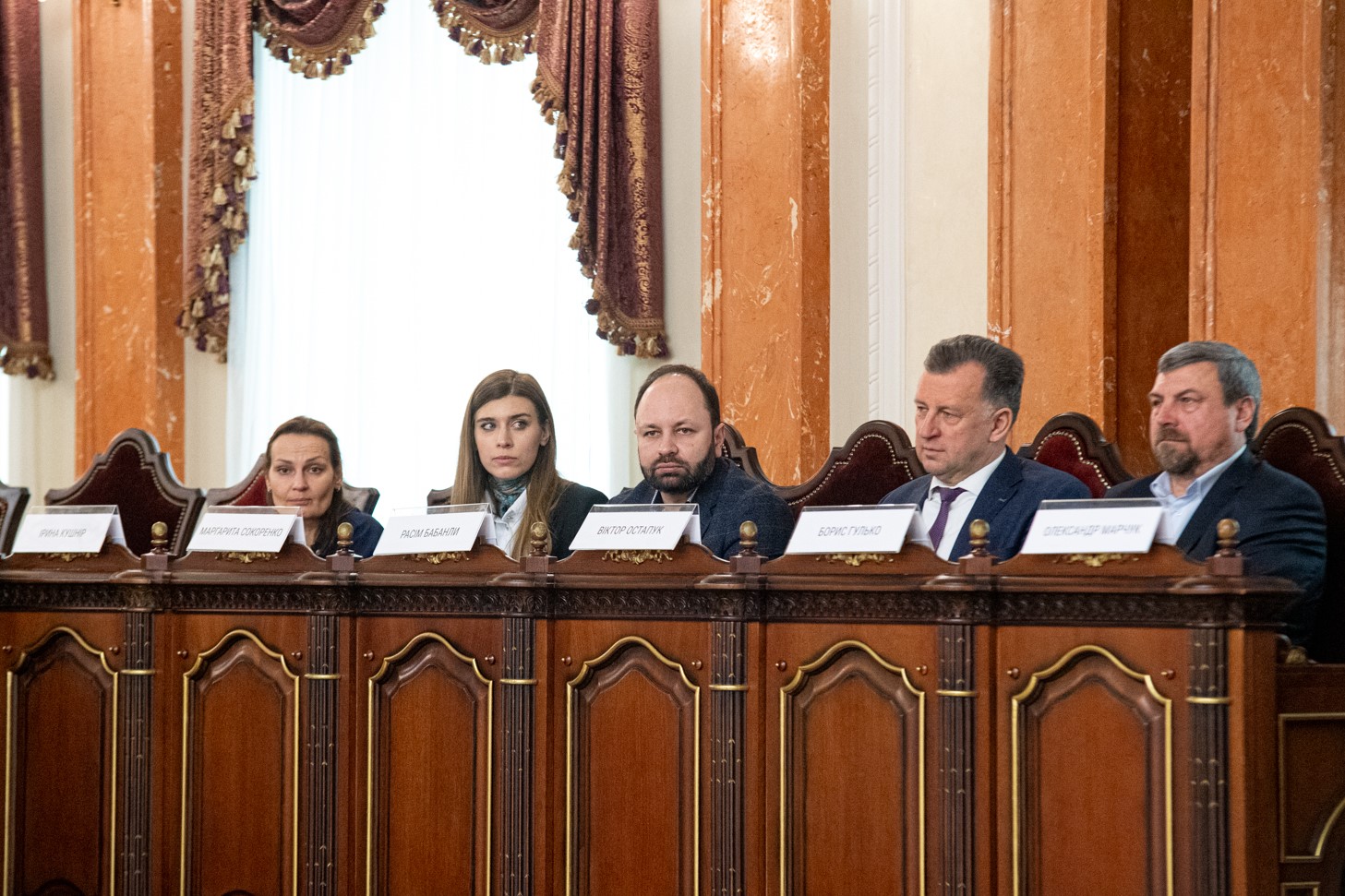
During the meeting, the Commissioner for the European Court of Human Rights Marharyta Sokorenko presented the relevant aspects of the ECHR case law in cases against Ukraine.
According to the speaker, one of the oldest problems faced by Ukraine and considered by the ECHR is the excessive length of court proceedings. The group of cases "Merit/Svetlana Naumenko v. Ukraine" deals with this issue.
The most common reasons for the excessive length of court proceedings are a heavy workload for judges due to understaffing and deliberate actions by the parties (their representatives) to delay the proceedings.
Another important aspect is the problem of the uniformity of case law. "It is very important for the ECHR that national judicial systems have a common practice in similar cases. This is directly linked to the principle of legal certainty, which the ECHR assesses in each individual case," Marharyta Sokorenko explained.
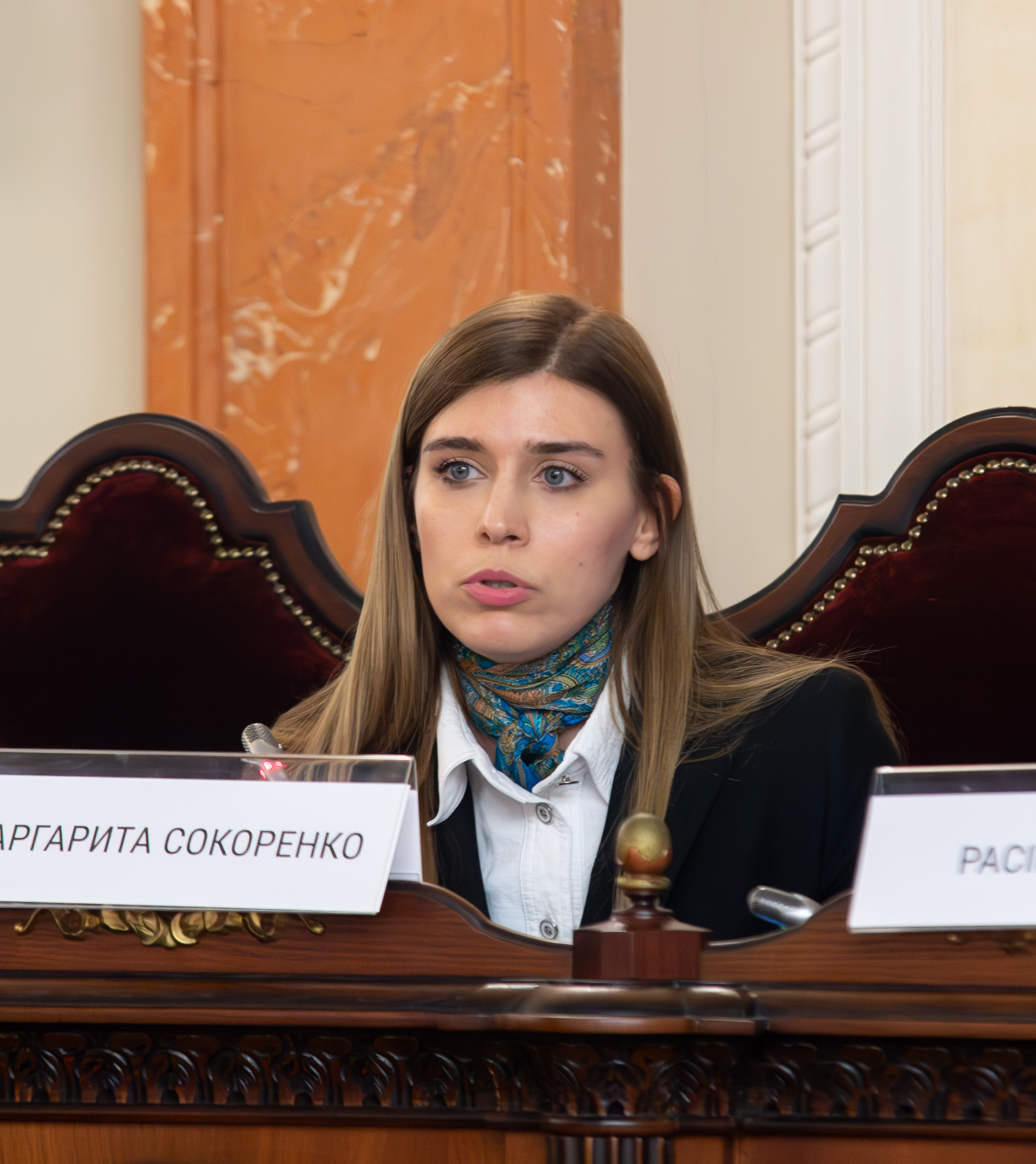
As an example, she cited the judgment in Stativka v. Ukraine, in which the ECHR found a violation of Article 6 of the Convention for the Protection of Human Rights and Fundamental Freedoms due to the inconsistent and unpredictable manner in which the national courts rejected the applicant's claim.
In this context, the Commissioner welcomed the fact that a working group has been set up within the Supreme Court to ensure uniformity of jurisprudence, as the ECHR considers that it is the responsibility of the courts of cassation and appeal to ensure such uniformity.

.jpg)
During the meeting, the heads of the appellate courts had the opportunity to ask the judges of the SC, representatives of the HCJ, HQCJ, SJA and the Commissioner of the European Court of Human Rights questions about the problems faced by the courts in different regions of the country. In most cases, the main challenges for the judiciary are staffing and financial support. In particular, the meeting discussed the possibility of returning to the administration of justice of those judges who had resigned but had not reached the age limit for holding office. This would make it possible to strengthen the staff of the courts of appeal right now.
.jpg)
.jpg)
.jpg)
In the second part of the event, the Supreme Court judges answered questions from the appellate courts regarding criminal proceedings.
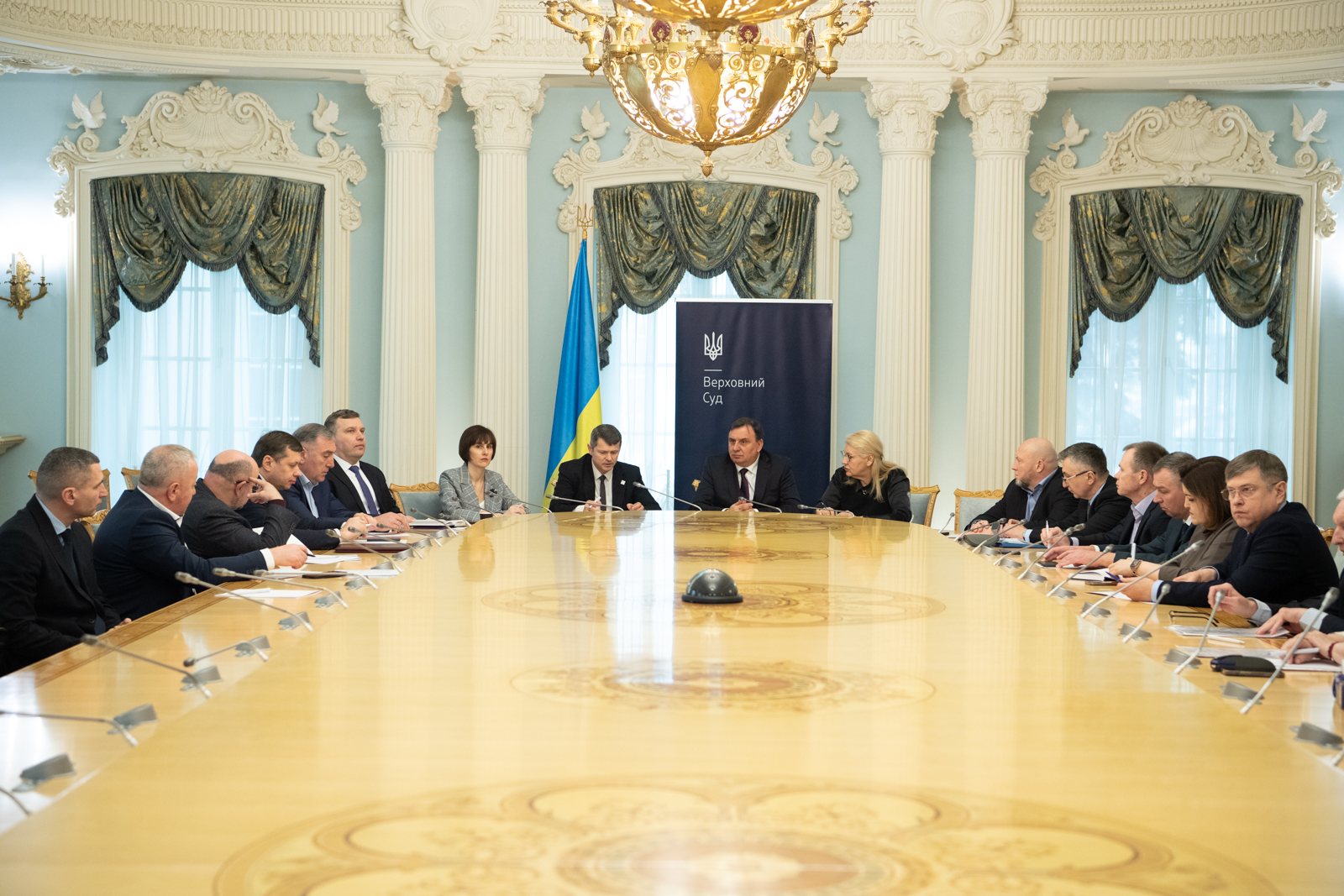
In addition, the participants discussed the judicial decisions of the Joint Chamber of the Criminal Cassation Court of the Supreme Court, which deal with a number of law enforcement issues.
The event was also attended by Vitalii Urkevych, Secretary of the Grand Chamber of the Supreme Court, Oleksandr Marchuk, President of the Criminal Cassation Court of the Supreme Court, Borys Hulko, President of the Civil Cassation Court of the Supreme Court, Oleksandr Baranets, Secretary of the Chamber for Corporate Disputes, Corporate Rights and Securities of the Commercial Cassation Court of the Supreme Court, Viktor Ostapuk, representative of the Council of Judges of Ukraine, Supreme Court judge in the Criminal Cassation Court, Rasim Babanly, First Deputy Chief of Staff of the Supreme Court, and Iryna Kushnir, Council of Europe Project Manager of the project "Support for the functioning of justice in the war and post-war context in Ukraine".